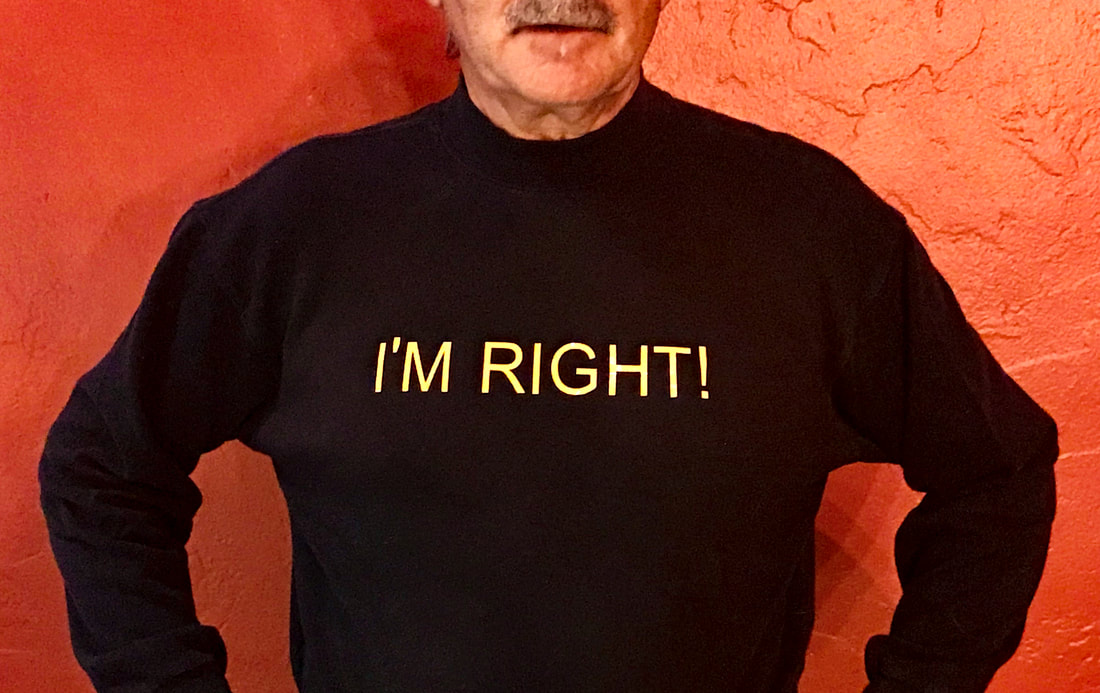|
We all experience trauma at some point in our lives. Trauma disrupts the normal functioning of the nervous system and a dysregulated nervous system does not always return to baseline when the traumatic event is over. The trauma is then essentially stored in the body and can be re-experienced, causing a range of somatic symptoms (bodily sensations) Sensorimotor Psychotherapy (SP) developed as an approach to treat these unprocessed traumas and the resulting symptoms.
SP is a body-inclusive approach. It promotes the notion that underneath the conscious verbal story of the trauma lies a somatic narrative full of information that can lead to healing. Sensorimotor psychotherapy harnesses the innate wisdom of the body by exploring and identifying the somatic impact of past traumatic experiences, as well as learning to track bodily and emotional responses when triggered. There are 6 guiding principles to sensorimotor psychotherapy – organicity, non-violence, unity, mind-body-spirit holism, mindfulness, and relational alchemy. Organicity Organicity refers to the internal wisdom we, as living beings, all have. This core principle of SP means the therapist is not “healing” their client. Instead, the client is encouraged to recognize the capacity they have within them to grow, change, and heal themselves. Nonetheless, SP is a collaborative process - the therapist offers support and guidance to promotes the client’s self-exploration and personal empowerment. Non-Violence The work done in sensorimotor psychotherapy is not forceful. It is centered in non-violence, which means criticizing or pathologizing are never a part of the process. Symptoms are not viewed as negative, but rather signals of our internal systems. SP encompasses a spirit of non-judgment, compassion, and acceptance as a way to create a safe space conducive to change. Unity As humans, we are all part of a living organic system of interdependent parts. Unity recognizes that while we are all interconnected beings, we are also composed of different parts – influenced by other individuals, communities, and larger systems. Sensorimotor psychotherapy promotes exploration of the individual self, through improving self-perception, recognition, and self-advocation. Achieving a more unified and holistic sense of self allows for increased personal welfare, healthier relationships, and an overall sense of wellbeing. Mind-Body-Spirit Holism SP works with emotions, thoughts, and the body together, based on the premise that they are all connected. Addressing the mind, body, and spirit holistically, rather than in isolation, can shed light on the impact each one of these parts has on the others (i.e. – how thoughts affect emotions, which then affect physical sensations and behavior). Through mind-body-spirit holism, growth and healing are integrated in a more profound and cohesive way. Mindfulness/Presence Mindfulness is at the heart of SP. Mindfulness refers to the practice of turning one’s awareness to the present moment. Mindfulness is used to help a client pay attention to certain aspects of their experience with compassion and curiosity. This promotes a greater sense of awareness of patterns, responses, and habits. Additionally, SP clinicians use mindfulness to attend to the client’s body language and breathing patterns, as a way to gain insight into how the body responds to specific thoughts, emotions, and memories. SP also uses relational mindfulness to help clients to build mirror neurons and provides a sense of safety as they explore their authentic self. Relational Alchemy Sensorimotor psychotherapy recognizes the impact relationships (especially early childhood relationships) have on our beliefs about ourselves, others, and the world in general. Although these beliefs are often developed subconsciously, they influence our behavior and responses. Rather than recognizing this intellectually, SP supports understanding this on a bodily, felt-sense level. Through shifting the felt sense, a client can begin to transform their connections to self and others. Through sensorimotor psychotherapy, clients can discover and change unhelpful patterns (both physical and emotional) that impede functioning. SP helps clients cultivate their strengths while providing enough challenge to inspire growth and long-lasting change. *Zen Institute’s clinical director, Pallavi Gupta, MA, LPC, is a certified advanced practitioner of Sensorimotor Psychotherapy. She was personally trained by Dr. Pat Ogden, founder of Sensorimotor Psychotherapy. Pallavi has been in the mental health field for over 20 years and specializes in treating trauma with a combination of Sensorimotor Psychotherapy and EMDR. There is no doubt COVID-19 has significantly impacted all of our lives. It has brought challenges we never thought we would face and has forced us to find new ways to do our jobs, sustain our relationships, and function in our day-to-day lives. There is no doubt this pandemic has taken an emotional toll on all of us, particularly those living with anxiety. And while we are still in the midst of uncertain times, there are ways we can better manage our anxiety and restore a sense of well-being.
Keep a Routine Establishing a consistent routine that involves regular meals, exercise, and sleep is critical to regulating our moods and managing anxiety. But the pandemic interrupted many of our previously established routines. And if you have yet to create new one, now is the time. Having a new routine helps us remember that life is continuing on. Daily routines can also support us in feeling more grounded, purposeful, and resilient. Stay Connected Maintaining healthy relationships with loved ones and friends is always essential to mental health and well-being. Unfortunately, the pandemic has made it difficult to connect with others in some ways in which we were previously accustomed. This has left many of us feeling lonely or isolated. But we can still pick up the phone, send a text, or get on a video call. The more we can connect with others, whether to share worries and fears, or just have a good laugh, can make a huge difference. Focus on the Here and Now The virus has brought a lot of uncertainty, and uncertainty triggers anxiety. It is easy to get caught in a cycle of anxious thoughts – all those “what-ifs” about what the future might bring. Unfortunately, this just compounds the anxiety. Concentrating on the present moment by focusing on what is happening right now, rather what might happen in the future is essential to managing anxiety. Of course, this is easier said than done. But our brains are trainable, and the more we can notice when our thoughts wander from the present moment and bring them back to the present moment, the easier it becomes. Some ways to come back to the present moment include:
Travel Virtually COVID-19 has made our worlds smaller. Seeing friends, going to our favorite restaurants, or visiting family are all things that look very different these days. Working from home, which perhaps felt novel in the beginning, just feels mundane now. And any sort of travel, whether for business or pleasure, has certainly come to a halt. The monotony of the days can leave us feeling restless, anxious, and unmotivated. Thus, it is vital to find ways to “shake things up”. Instead of scrolling endlessly through social media feeds or mindlessly playing that phone game for hours, try using technology in a different way - by traveling virtually. After the pandemic hit, countless museums, national parks, and zoos created virtual tours for people to take from the safety of their homes. These virtual tours can help break up the monotony of the day and keep our minds stimulated, even if we are stuck on the couch. Check out this list of virtual tours, or do a quick internet search to find what might interest you. Use Gratitude During challenging times, it can be tough to notice the good stuff. However, finding ways to be grateful can really boost our ability to cope. Practicing gratitude increases the “feel-good” hormones in the brain – serotonin and dopamine, and has been shown to improve immunity and an overall sense of wellbeing. There are many ways to bring more gratitude into our lives:
Practice News Distancing For months, every newspaper, social media platform, and tv station has been flooded with coverage about the pandemic. While staying up-to-date and informed is important, there is such a thing as too much information. Being inundated with any information, especially that which is stressful in nature, can be overwhelming. So, just as we are practicing social distancing, we also need to be practicing “news distancing”. Try designating certain times throughout the day to “unplug” from news and social media. Or try “unplugging” altogether for a day or two (you could designate a trusted friend or loved one to share news updates as necessary). Seek Support If you’re feeling overwhelmed by your anxiety, remember, it is OK to ask for help. Mental health support is more accessible than ever, with many therapists offering telehealth sessions remotely, either via phone or videoconference. 3 Steps to simplify your life: Step 1: Give up false Self-Identity Step 2: Give up being perfect Step 3: Give up being right “No, no. I trust your judgment. Implicitly. You're just wrong.” ~ Hy Conrad It feels right to be right, but do you know that being right all the time is actually wrong? No one knows everything at all times, so chances are sometimes you are wrong! There is an even more annoying situation: you know that you are absolutely right, but people want to argue with you just to prove that you are wrong. How do you deal with that? The first year I arrived in America, I landed in Ann Arbor, Michigan. I remember it was a Sunday afternoon. My partner Roger and I went into a grocery store and did our weekly grocery shopping. On my way out, I noticed that there were two sets of doors. I went towards the door to my left, and Roger screamed at top of his lungs, “Why are you going that way? My car is parked on the right side of the door!” He shook his head with a very disgusted look on his face. The interpretation in my head was “I am so stupid, I can never do it right!” I completely shut down. This was a typical communication pattern I had with Roger. Wanting to be right was my mission for many years. It felt like it was the only way to survive in the relationship with Roger. Looking back, I know it is the root of my perfectionism. I had to be perfect, or I would be attacked by him. Throughout the 11 years of our relationship, I was constantly engaged in a competition with him to be right. It was very exhausting and eventually led to my suicidal thoughts. Over the years, I have worked on giving up being right. Giving up being right also means giving up judgment. “Judgments prevent us from seeing the good that lies beyond appearances.” ~ Wayne Dyer Practicing “No judgment” means sticking to the facts. For example, driving on a highway, if someone abruptly pulls in front of my car, my instinct might be to yell “What a stupid a-hole! He shouldn’t be driving like this!” Sticking to the facts would be: “This man pulled his car in front of mine abruptly, and I got scared.” Stop right here. Do not run the mental movie in your head. Negativity breeds negativity. The more judgmental you are; the more negative you become. Giving up being right does not mean that you are wrong nor becoming a door mat. It means you are able to see the big picture and understand that there are two sides to every story. You can always learn to see the positive side. Giving up being right opens up a world of peace. You will notice things that used to bother you now roll off your back effortlessly. People around you are still being rude and judgmental, but your choice of giving up being right somehow eliminates the negative energy. It brings you more loving kindness and a deeper sense of understanding towards humanity. Next time someone is challenging your beliefs, use that opportunity to practice giving up being right: Step 1: Notice yourself feeling the need to defend yourself. Drop it. Step 2: Focus on how you feel emotionally. Stay in your heart and feel your feelings without judgment. Step 3: Use this format to communicate: “When you behave this way, I feel… (Use feeling words: anger, sad, hurt, lonely, and so on). Take it from your head to your heart. The power of using feeling words is that any human being on this planet can relate to you. It’s ok to have disagreements with someone you care about. You can still love this person, but you don’t have to pay the price of feeling like a loser if someone disagrees with you. Ask yourself this question: At the end of day, what matters to you the most? Winning the argument? Proving to people how smart you are? For me, it is having inner peace and knowing that I have done my best to love, forgive and create the life I want. “Being right” is the job description for a drama queen. It is guaranteed to provide you with a chaotic life. Life is so much simpler if you give up being right. Once you have made this conscious decision, the rest will fall into place! “If you change the way you look at things, the things you look at change.” ~ Wayne Dyer Enjoying this blog? Click here to get tools delivered to your inbox.
We are happy to announce our new 3 week Mental Detox series. This week we are discussing forgiveness. Week 1: Be Forgiving Week 2: Be Present Week 3: Be Connected To forgive is to set a prisoner free! No one wants to be a prisoner. The reality is that many of us are living our lives just like a prisoner serving a life sentence. We are trapped in the past, dwelling on the mistakes we have made, or the abuse others have done to us.
Do you recall the mental movie you have played over and over in your head? It only makes you feel bad, yet you just don’t seem to be able stop it. So why do we torture ourselves like this? How do we set ourselves free once and for all? Ready for the answer? Forgiveness. People have told me that they can’t forgive because somehow it makes what happened to them acceptable. Forgiveness does not mean what happened to you was ok, nor to forget about it. Indeed, not only do you remember what happened, you also have the courage to process the feelings and body sensations that are associated with it. As a result of that, you are no longer a victim who is bonded with the perpetrator. “When you forgive, you in no way change the past, but you sure do change the future.”** For those of you who can’t stop beating yourself up for your mistakes, practicing forgiveness will serve you as a reset button, and allow you to learn a lesson from them! Everyone makes mistakes, big and small. Yet ALL of us deserve to be forgiven, including yourself! The beauty of being human beings is that we have unlimited ability to improve ourselves! Without forgiveness, we will continue to get stuck at square one. When you choose not to forgive, the anger and resentment becomes like a venom, circulating in your body, day in and day out eating you up. Eventually you will get very sick physically, mentally or spiritually. Forgiveness is the first step for your mental detox. For me, the most difficult thing to forgive was the sexual abuse that happened when I was a little girl. It took me many years to finally admit and process what had happened. I chose to forgive my perpetrators, not for them, but for me. What I realized is that forgiveness in fact comes with an amazing sense of inner peace. Do you want to live a life that is light and free? Forgiveness is the key. “To forgive is to set a prisoner free and discover that the prisoner was me!” ** ** “To forgive is to set a prisoner free and discover that the prisoner was you!” ~ Lewis B Smedes ** “When you forgive, you in no way change the past, but you sure do change the future.” ~ Bernard Meltzer “My name is Wen, I am a recovering Worryholic!” I used to be a 24/7 worrier. If I had nothing to worry about, I would invent something to worry about. If you can relate to me, this blog is for you! In 1992, I got my first job in America working in a group home in Whitmore Lake, Michigan. One day, at about 2am, I was asked to go to the market to get $300 worth of groceries. After I reviewed the grocery list, I started to have a panic attack. Sitting alone in a huge empty van, my palms were sweaty, my heart was pounding and my knees were shaky. I had no clue what “Q-tips”, “Jell-O” and “Kleenex” were. I looked them up in my Chinese-English dictionary. Nothing showed up. All I remember was that horrible sinking feeling in my stomach, “I am going to be fired…” “I won’t be able to pay my rent, my gas, and my food…” “I will be homeless…” After 15 minutes of panicking, I decided to face my fear. I turned on the engine and took off. As I arrived at the grocery store, I was greeted by three very friendly staff. I let them know that I was a foreign student, and I had no clue what the things on the grocery list were. The staff was extremely helpful and within 20 minutes they brought me three full carts of groceries. They even loaded the things into the van for me. Mission completed without fail. This experience taught me to put my worry aside, focus on what IS under my control, and let the Universe take care of the rest. The law of attraction means that whatever we focus on, we attract more of it into our lives. The more worrying we do, the more fear we will experience. If success means more love and abundance, failure means more fear and losses, and who in the world wants to fail and attract more fear into their lives? We are creatures of habit. Unfortunately, many of us have developed a very bad habit called worrying. A lot of times, we zoom in and worry about things that have not even happened. We are paralyzed by worrying. It eventually becomes anxiety, depression and all kinds of addictive behaviors. Here is an example: As I was driving on a highway, I saw a car broke down on the side of the road. I immediately started to think, “what if my car breaks down...bla, bla, bla…” Instead of living in the present and doing something about the funky noise my car was making, I was consumed by my worry that my car would break down. Sure enough, in just a couple of days, my car broke down! What happened was a picture of a self-fulfilling prophecy. Worrying is a waste of time and energy. The question is, how do we turn off the WORRY switch? When you are worrying, you are trying to control what is going to happen in the future. Since the future is not here, how can you control something that does not exist? If every second that you got stuck in the future box, it cost you $1,000 how much money could you afford to lose? In reality, your life is more valuable than $1,000 a second. No amount of money can buy the time you have lost worrying. As a human being, you are wired to win! You can manifest anything you want in your life. All you need to do is to turn off the WORRY switch! The definition of Zen is: “There is no reality outside of here and now.” When you decide NOT to live in the future box, you are turning off the WORRY switch! When that happens, you open up a world of possibilities. You are creating an opportunity to live a life that is full of love, peace and joy! “You have wings. Learn to use them and fly!” ~ Rumi Enjoying this blog? Click here to get tools delivered to your inbox.
 Let go! It’s easier said than done, we all know that. On my way home today, while driving by the intersection of two main streets, I saw someone abruptly pull her car in front of another driver. Instead of letting it go, the other driver was screaming at the top of his lungs, cussing at her with foul language and gestures. To protest this injustice, he intentionally parked his car at 120 degrees occupying two lanes at the traffic light. Our default is automatically set for reaction. Most of time it is compulsive reaction vs calm response. The consequence of not being able to let go is to continue to be trapped in endless pain and suffering. Letting go is the only way for us to march forward! In other words, letting go is the spirit of surrender. A lot of people have difficulty understanding what “Surrender” really means! I will use a story about the boxing champion Muhammad Ali to illustrate what surrender really means. Ali invented a very famous technique called “Rope-a-dope”. In the beginning of the fight, he would cover his head up in a defensive position and let his opponent punch him over and over. He would stay very close to the rope, and then bounce back from the rope, once his opponent punched him for a while and used up his energy, then Ali would wait until just the right moment, and give his opponent “Bang” a big punch in his face! This is the power of surrender, winning by letting go! Does surrender mean to “Turn a blind eye to it?" No! Does surrender mean to “Wave the little white flag and admit that I am defeated?” No! Surrender means to temporarily let go of the current situation, focus on the right timing and take action that is 100% under your control! For example, maybe you don’t like the fact that your job sucks. Instead of complaining about it, you continue to show up for work, tolerate the current situation, be the best employee you can be. Meanwhile you are taking action and applying other jobs that are better suited for you! You are creating a win-win situation! This is why practicing “Surrender” is the quickest way to get to wherever you want to be! You will never be stuck or become a victim of your current situation! Be like Ali, my friend! You can let go and march forward, because YOU are the champion! Call for action: 1. If you think this blog may be helpful to someone you know, please feel free to forward this information to them! 2. Use the buttons below to connect with us by Facebook or Twitter 3. Email us with your suggestions |
AuthorsJenna Jarrold, MS, LAC, NCC Archives
August 2021
Categories
All
|
Zen Institute Tucson
5210 E Pima Street, Suite 110
Tucson, AZ 85712
877-777-6007
5210 E Pima Street, Suite 110
Tucson, AZ 85712
877-777-6007
© 2012-2024 Zen Institute, LLC. All Rights Reserved
Zen Institute® is a Registered Trademark with the U.S. Patent and Trademark Office






 RSS Feed
RSS Feed



